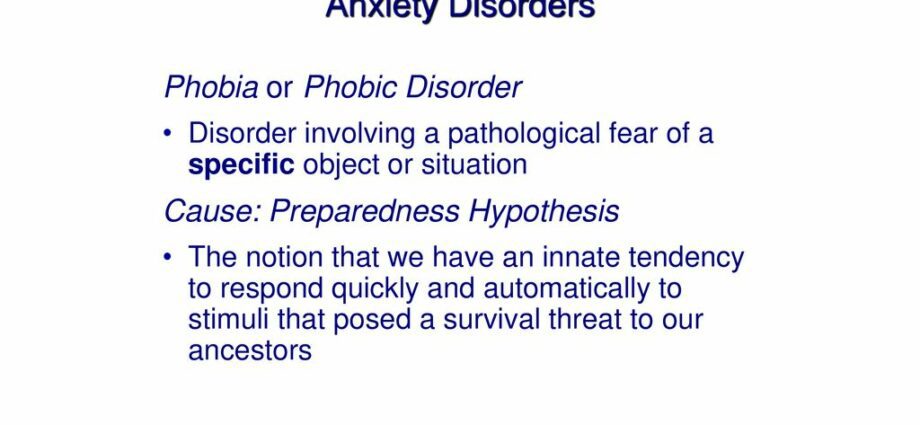Contents
What is impulse phobia?
Impulse phobia is an obsession or a haunting fear of committing an aggressive, violent and / or reprehensible act, and morally prohibited. We speak here of “phobia” by abuse of language, because the phobia of impulse is not, strictly speaking, a phobia. Psychiatry classifies it in the category of Obsessive-compulsive disorder, or OCD.
Because here, it is not a question of a fear occurring because of an object, a precise situation or an animal, but ofan almost permanent, obsessive fear of “doing wrong”, or even of having done wrong. This obsessive idea of committing an immoral act can invade the mind of a person prone to an impulse phobia, to the point that they fail to “get the idea out of their mind.”
But what ideas are we talking about? People with an impulse phobia, for example, have the fear of hurting someone, or themselves, physically or mentally. They can “see themselves” and imagine assaulting their loved ones. We can cite the example of a person who handles a knife in the kitchen and sees the horrible image imposed on him of being stabbing to death a loved one by his side. The phobia of impulse can also result in the fact of seeing oneself rushing or throwing someone into a vacuum (or on the railway tracks of the metro or the train …), of speaking profanity in public places or sacred, etc. There are many variations of impulse phobias, so it’s difficult to list them all.
During the postpartum period, after childbirth, impulse phobia often manifests itself as fear for a mother of hurting her baby, drowning her, pushing her or sexually assaulting her (pedophile and / or incestuous urges). And a quick tour of the parental forums is enough to realize that these phobias of impulses during the postpartum do exist.
We understand here that impulse phobias are often linked to the moral values of society, and to cultural and societal fears.
It is estimated that several hundred thousand people suffer from an impulse phobia in France. But, fortunately, such haunting fears and immoral thoughts usually don’t translate into action, and do not indicate that the person suffering from it is “crazy”, “dangerous”, “pedophile” etc.
Impulse phobia: what are the symptoms?
Impulse phobia, a haunting fear that falls into the category of OCD, results in:
- -the presence of horrible images or thoughts (aggressive, violent, immoral, etc.) which are imposed on our mind repeatedly;
- -the fear of losing control and taking action, of acting in a way that horrifies us;
- -the fear that these haunting thoughts translate a malicious personality lurking deep within oneself, or unacknowledged hidden desires (in the case of pedophile ideas in particular).
Avoidance strategies and other consequences of impulse phobia
Impulse phobia is more than difficult for the person who suffers from it. Although the risk of taking action or, considered null, the person suffering from an impulse phobia suffers from a terrible anxiety at the idea that these obsessive thoughts translate into action, or that they do not hide a very dark part of his personality, hitherto unrecognized.
In response to these images and thoughts, people with the disease may come to implement a whole bunch of stratagems to get away from places (metro, train, bridge, etc.), objects (window, needles, knives, etc.) or people (baby, spouse, relatives) to whom the phobia of impulse is directed. They hope that they will never take action, avoiding situations they consider “at risk”.
For example, in the postpartum setting, a mother having the phobia of impulse to drown your baby when she gives him the bath will tend to let her partner or someone else take care of this task, lest this thought come true. She will therefore deprive herself of a moment of strong bonding with her baby, which can harm the mother-child relationship, especially if the mother also avoids other similar situations (changing the diaper, breastfeeding, carrying a baby, etc.).
People prone to impulse phobias may also try to neutralize these haunting fears with symbolic words or acts recited to “ward off” the situation.
Called “ruminations”, Mental checks can also be conducted by the individual with an impulse phobia, who will try to mentally verify that he has not done anything wrong, or that he does not want to take the next step. ‘act. He may then be required to undertake checks, for example by checking that no one has been pushed onto the metro trains during the day, or run over by a car, if his phobias of impulse are of this order.
Treat impulse phobia
To get rid of an impulse phobia, one must be able to accept these thoughts as only thoughts, and realize that they are fortunately not. not doomed to come true.
Most of the management of impulse phobia is based on psychotherapy, and in particular cognitive behavioral therapy (CBT).
This will involve getting the person to gradually tolerate these obsessive and terrifying thoughts, to reduce their anxiety and the fears they arouse. Accept these thoughts rather than dismiss them and blame yourself to have such images in mind would make it possible little by little to get rid of them, to make them disappear.
A drug prescription can be useful in addition to treatment by a psychologist or psychiatrist. Even without associated depression, antidepressants would be effective in gradually reducing the level of mental invasion by obsessions, as well as the anxiety and anxiety levels of the person with impulse phobia.
Finally, although their effectiveness in the management of an impulse phobia has not been scientifically demonstrated, softer approaches such as mindfulness meditation or phytotherapy, via the taking of relaxing plants or known to be effective against depressionn, can help get rid of OCD or impulse phobias. However, it is better to use these gentle methods in addition totreatment by a psychotherapist for more efficiency.
Sources and additional information:
- https://www.cairn.info/revue-enfances-et-psy-2009-3-page-92.htm
- https://theconversation.com/les-phobies-dimpulsion-ou-lobsession-du-coup-de-folie-107620
- http://www.nicolassarrasin.com/phobie-impulsion










